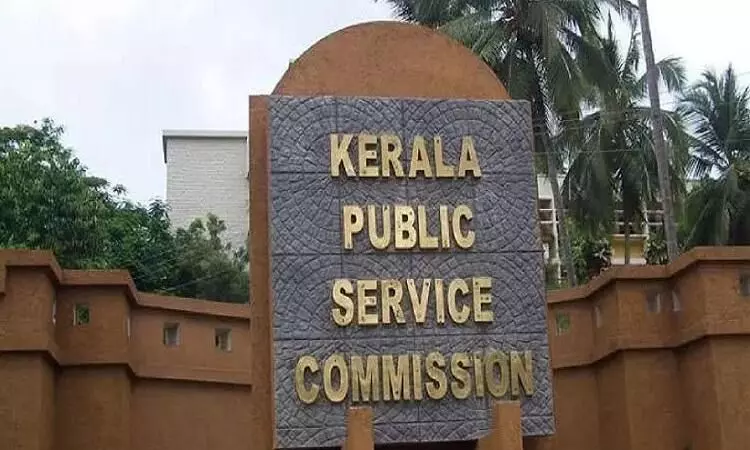
KPSC exam structure changes: Reform or gimmick
text_fieldsKerala Public Service Commission (KPSC) has decided to change its exam structure and format, with a goal of making the conduct of exams and declaration of results more transparent and secure. From December, the tests will be held at two levels, with a screening test based on the basic required qualification of the candidates and a second round for a shrunk list of candidates to face subject-based test.
Based on what KPSC chairman MK Sakeer stated at a news conference, this will obviate the long wait of tens of thousands of people for results and also expedite publication of rank lists. Since the Commission is the authorised body to make recruitment to the state services and that of entities owned by the government, periodic review and reforms in its testing pattern is an essential exercise. It is also certain that a departure from the conventional mode to introduce an element of orientation to the targeted posts and based on applicable subjects, is bound to result in qualitative improvements. Viewed in this perspective, KPSC's stated steps are to be welcomed. However, the million dollar question is whether the envisaged reforms will adequately address and resolve the radical issues faced by it at present.
Public service commissions in the states are constitutional institutions like the Election Commission. They are envisioned as autonomous bodies that can function independent of the executive and without the red tape of regular bureaucracy, and as organisations whose performance will determine the future of the country. However, in practice almost all of the PSC's are are hampered by their style of operation which is a blot on this conception of 'purity'.
The track record of Kerala PSC too is more or less along these lines at least for the past two decades, with stinking tales of corruption and nepotism often emanating from its precincts. From the story of 36 candidates securing employment through leaked question paper in the Lower Division clerk test in Kottayam in 2003, to last year's incident of cheating in exam halls by a few pro-CPM SFI workers, who were accused in a criminal case of stabbing, instances are many that have sullied the image of the constitutional agency. More sadly, there were not even serious and exemplary probes in these incidents. In the former episode, although eight accused confessed to the offence before the Crime Branch, the government got follow-up action frozen through a court order.
The then UDF government justified it with the specious argument that it would damage the credibility of PSC. Years later, in the case of the University College incident, Pinarayi Vijayan's Left government adopted a similar stance. The victims of such misguided approaches of authorities, are the hundreds of job-seekers caught in the process. Amid the controversy surrounding the recruitment to the post of civil police officer - in which the SFI workers were caught - recruitments to seven battalions had to be cancelled at least tentatively. Subsequently, within a short time after the list was restored, the rank list lost expired. As a result, 65 per cent of those rank list got eliminated.
As the PSC chairman himself stated, this is an era when the public count on the respected body ever more than before. And the number of applicants is on a steady climb. If ten years ago, 20 lakh job-seekers had applied for test, today that number has risen to 1.25 crore. However, the number of appointments has not registered a corresponding increase. In 2008, out of 17 lakh applicants, 25,000 applicants had got appointed, but in the last two years, the average number of advice memos sent is below 40,000. During the last four years, only 1.3 lakh were given appointments. This is a far too low number, given the number of registered candidates. This happens not because of paucity of vacancies, but due to serious corruption. Enough number of stories about this have been revealed. Cases of receiving bribes for appointments and of appointing favourites as temporary employees without reporting vacancies, have become regular practice in the state.
In the meanwhile, now PSC has declared that the validity of rank-lists will not be extended. It is when all the rank-listed candidates have not been offered appointment that this unfairness is being meted out. PSc's explanation that this happened because the published lists were too elaborated, is not supported by facts. In fact, those who have got appointed from the current list are far fewer than those appointed from the previous list. This forces one to infer that PSC and the government are aiming at an undeclared ban on recruitment through this.
On top of all this ineptitude are the frequent and retrograde resort to anti-reservation measures, which have by now become the hallmarks of PSC. It may be recalled that a possible subversion of reservation in the recruitment to the newly established cadre of Kerala Administrative Service (KAS) was thwarted only by staunch public protest. In short, a thorough overhaul is inevitable in this public body. If the current move is a first step towards that noble goal, it is welcome. Otherwise, if it is just another gimmick, that will only spell doom for this institution.
























